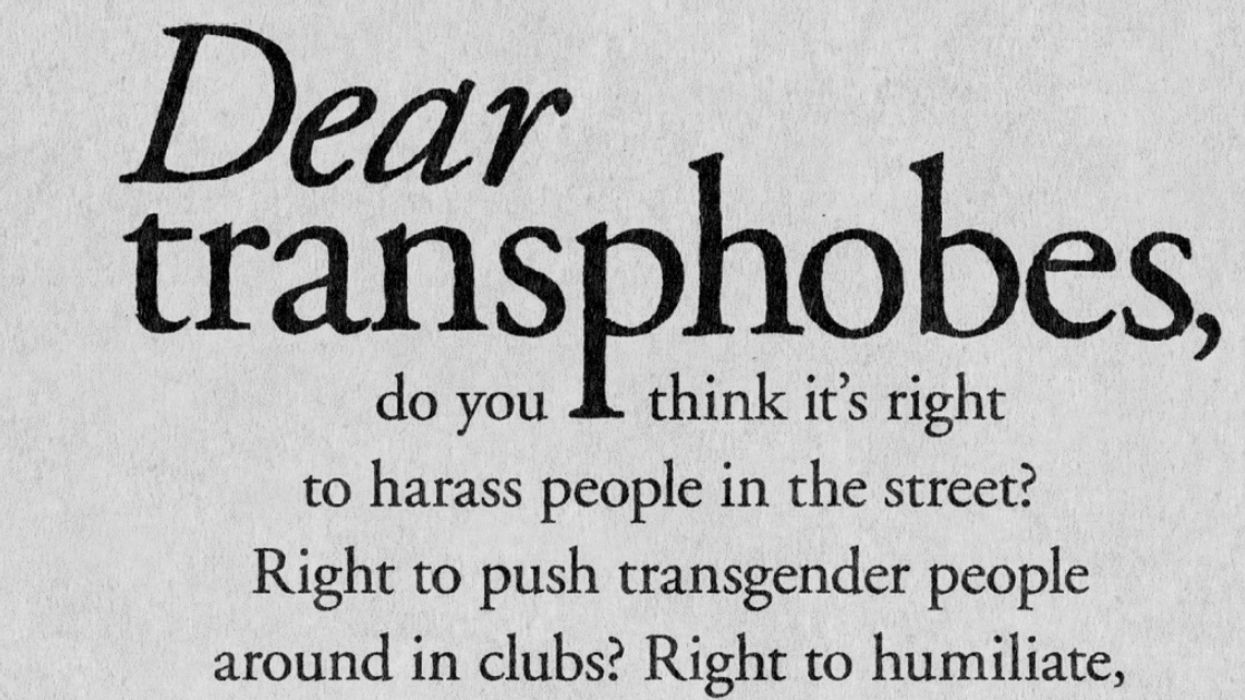March, 2005, LOS ANGELES - For the last nine months, I have been engaged in a challenging, and, to my surprise, immensely informative charge. Last summer, I was asked to serve on a task force suggested by New York Congressman Charles Rangel and chaired by former Illinois Representative, Cardis Collins, to evaluate a new technology for measuring television viewing - a system called the Local People Meter.
Like all of you, I had known of the Nielsen ratings. For people working in television, the ratings mean life or death. If your rating is good, your show is renewed and you survive for another season. If it's low, your show is cancelled and you find yourself among the unemployed. This recently happened to the latest Star Trek spin-off, "Enterprise." Its low rating killed it.
Yet, I knew very little about how the ratings were arrived at. It was a mystery to me. The Nielsen rating was life or death to us and I didn't know how this murderous and, at other times, life sustaining system worked.
I'd never met anyone in the Nielsen rating pool. So serving on the Independent Task Force on Television Measurement was an eye-opening education. Beyond learning about the Nielsen rating process as it had been practiced, I learned about the new technology being introduced as well as something about technologies yet to come. I learned of the scores of interests, other than those of us involved in television production, that are vitally concerned with the Nielsen rating - advertisers, ad agencies, broadcasters, language groups, statisticians, demographers, researchers, and many other sectors. I was staggered by the huge advertising dollars, in the tens of billions that are determined by the ratings numbers. I learned a lot.
I vaguely knew that the Nielsen ratings had something to do with measuring the television viewing of representative people selected, based on the last census. These individuals would be requested to keep a diary of the shows they watched. Indeed this proved to be the system as it had been. This rating system was based on the assumption that the people selected would be diligent and honest. Most people were but others were not. Even if a person had not watched their favorite show for whatever reason, that person might have written it down in their Nielsen diary just to keep their favorite show's ratings up. There was virtually no way of verifying the accuracy of the diaries.
The technology being introduced - the People Meter - eliminated that unreliability. A device was to be attached to every set in the household; each member of the selected household had a button that he or she was to press when viewing and everything that particular individual watched would be recorded. The device would capture even the channel surfing of that viewer. This was certainly an improvement over the old diary system.
Because today we have so many channels and so many choices, inevitably the ratings of the big networks were affected. In the days when we had a limited number of options, the big networks had massive numbers. Now, with so much competition, some of the big networks numbers, inevitably, were adversely impacted. Some of those affected networks challenged the precision of the People Meter count. There also was the allegation that minority audiences were not accurately counted. Thus, the Independent Task Force on Television Measurement was formed to make an objective assessment of the accuracy of the People Meter system.
The Task Force met and received testimonies from many individuals representing myriads of interests. We met with them throughout the country. We formed committees to address specific areas of concern. Because the members were located throughout the country, there were countless telephonic meetings. The members of the Task Force worked tirelessly and collegially. We listened to the many testimonies; made findings and crafted recommendations for improvements to the accuracy of the measurement. After nine months of dedicated work, the report of the Task Force on Television Measurement was completed in March. Those interested in looking over the full report can download it here and get more information on the Nielsen ratings by clicking www.everyonecounts.tv. Our Report has been well received. Nielsen has accepted the Report and our recommendations. Nielsen has already implemented many of the recommendations and others soon will be.
My time with the Task Force has been personally enriching. I now have a deeper appreciation of the complexity of our dynamically transforming society both technologically and demographically.
Demographically, the ethnic population of this nation is growing not only explosively but also in multifaceted combinations. Caribbean Africans may be Black but culturally Spanish speaking Latino Blacks. Asians from South American countries like Peru or Argentina are likewise Spanish speaking. The population from the Middle East is growing rapidly in certain parts of the country. Blacks from Africa are now adding to the mix of languages spoken in the United States. Intermarriages are creating a myriad ethnic and language combinations. Children of these intermarriages are forging new self-identities. The buying power of these groups is rising faster than that of the non-ethnic population. The measurement of television viewing by such complex and diverse audiences is becoming increasingly challenging and Nielsen has been developing technologies to meet that challenge. The Local People Meter is a step in that direction.
However, technology is adding to the complexity. Advances in technologies like digital video recorders, Tivo, and others allow the audience not only to determine when they view a show, but also to fast-forward right through the commercials that pay for the shows. This is of critical concern to advertisers who pay enormous sums for their ads. I learned that we will soon be seeing people selected to wear cell-phone-like devices called the Portable People Meter that will not only capture the shows and their accompanying ads that they see at home, but wherever they happen to see television, whether at a bar, a friend's home or on the street. Yet to come are devices that not only will capture the shows seen but the purchases that individual makes by registering the bar-code information of the product bought. Further, these devices will also record the time it took for an individual to make a purchase after they first saw the ad. I don't think Star Trek ever explored this frontier or the boundaries of privacy that technology approaches. What a fascinating Star Trek script that would make!
Scotland Tackles Transphobia and Homophobia In Brilliant New Billboard Ads ❤️
The Scottish government has had enough of hate crimes and is moving forward with a gutsy campaign.
According to Pink News, Scotland is launching a new initiative to combat intolerance with messages respectively addressing "bigots," "disablists," "homophobes," "racists," and "transphobes" in a series of ads circulating across the country.
Each message is signed on behalf of Scotland.
The campaign is part of the Scottish government's One Scotland project in an effort to reduce hate crime.
"The provocative ads were produced by the Scottish Government and Police Scotland as part of the One Scotland campa… https://t.co/KjinQL9xXT— Lizanne Foster (@Lizanne Foster) 1537935300.0
One letter reads:
"Dear transphobes, do you think it's right to harass people in the street? Right to push transgender people around in clubs? Right to humiliate, intimidate and threaten them online? Well we don't."
"That's why if we see you doing harm, we're reporting you. We believe people should be allowed to be themselves. Except if they're spreading hate."
"Yours, Scotland."
In another letter, the country says it has a "phobia" of homophobic behavior.
"If you torment people because of who they love, shout word that we are not going to write, or use violence because you don't like who someone is holding hands with, you should be worried."
"If we see or hear your abuse, we're calling the police. That's because love lives in this country, not hate."
"Yours, Scotland."
One Scotland's website describes the organization as one that aims to continue building an inclusive society while recognizing the significant strides made so far towards equality.
"One Scotland embodies the inclusive society we want in Scotland, where equality and human rights are respected and every individual and minority group feels valued."
There is a new ad campaign against hate crimes in Scotland. “We are a caring nation, not a hating one”.… https://t.co/rfsiFjIq6V— Jen Yang Mezei (@Jen Yang Mezei) 1537975493.0
The website defines hate crimes as abuse that "can be verbal or physical and has hugely damaging effects on the victims, their families and communities, and we all must play our part to challenge it."
"Police Scotland takes hate crime very seriously. In the last year there were over 5,300 charges of hate crime reported to the Procurator Fiscal in Scotland1."
"However, there are many more incidents that go unreported. We all have a responsibility to report hate crime if we witness it – it's the only way we can challenge it, and put an end to it for good."
The fact that the Scottish government and police are behind this ad campaign is incredible. It's good to see at lea… https://t.co/zMrqDVrhed— TransgenderDate (@TransgenderDate) 1537900917.0
Justice minister Humza Yousaf is familiar with being a victim of a bigotry and is encouraging people to call out and report any incidents involving harassment.
"As somebody who has faced Islamaphobic and racial abuse over the years, I know how upsetting being a victim of hate can be. Hate crime and prejudice are completely unacceptable and we are absolutely committed to tackling it."
"We all have a role to play in stamping out prejudice and I would ask anyone who witnesses a hate crime to play their part and report it. Justice agencies such the police and Crown Office will deal sensitively with reports made and people should have confidence in how they will be treated. Last year there were over 5,300 charges of hate crime reported to the Procurator Fiscal in Scotland but there are still many incidents that are going unreported."
New Ad Campaign launching on billboards and ad spaces all over #Scotland tackles #hatecime. The Police Scotland a… https://t.co/VJFH0jprjP— Pinksixty (@Pinksixty) 1537896702.0
Henrietta Mochrie identifies as transgender and has been the victim of repeated harassment and abuse. She emphasized the importance of speaking out against the hatred.
"I'll often get street harassment, sometimes this has escalated to the point where I've been followed by people shouting abuse at me, just because of who I am."
"It makes me feel really down and scared to leave the house. It's important that if you witness hate crime that you report it to take a stand against hate."
One Scotland's ad campaign officially launched on Wednesday.
Hopefully, it won't take too long before other nations follow suit in this bold, yet necessary fight for equality.
H/T - OneScotland, PinkNews, Twitter
Feminists Slam Man Telling Them They Can't Have Both Chivalry And Equality
A man on Twitter informed feminists they had to choose between chivalry and equality.
He was promptly raked over the coals for even assuming an antiquated concept would be considered as a viable option.
Twitter user @Rich_Cooper stated:
"Dear feminists. You either get equality or chivalry. You can't have both."
Dear feminists. You either get equality or chivalry. You can't have both.— Richard Cooper (@Richard Cooper) 1536083523.0
One user responded:
"I'll take equality. I don't need special treatment."
@Rich_Cooper #BenevolentSexism is still #sexism. I'll take equality. I don't need special treatment.— ☮️ Minkajane ☮️ (@☮️ Minkajane ☮️) 1537276790.0
Cooper's rhetorical question did not go over so well. Both women and men expressed their disdain for his message.
One male user observed that chivalry was irrelevant and treating everyone with kindness and respect was compulsory.
"What people care about is caring, empathic [sic], considerate, thoughtful people, NOT whether THEIR door is held for them or THEIR meal is paid for them."
"Are there gender stereotypes in het[erosexual] dating? Sure. But that's separate from being a warm, giving, caring, grounded person."
@Rich_Cooper What people care about is caring, empathic, considerate, thoughtful people, NOT whether THEIR door is… https://t.co/wlGHWRzKLi— Mark W. Wilson, MD (@Mark W. Wilson, MD) 1537276816.0
Some women got right down to the point.
@Rich_Cooper Translation: I will only be nice to you if you agree to be subservient to me— Elizabeth Noll (@Elizabeth Noll) 1537292709.0
@Rich_Cooper Gotta love when a man tells women what they can and can't have. Thanks for the heads up buddy 😉 https://t.co/gDMJscuTac— Hannah ✊ (@Hannah ✊) 1537285112.0
@Rich_Cooper Translation: I couldn’t possibly be expected to treat women as equals, show them respect, and still feel like a man.— Dom (@Dom) 1537293169.0
@Rich_Cooper We are sooooo bored with "chivalry" which stems from the courtly love period in the middle ages when w… https://t.co/wRho1a9DTz— Jeanthejust (@Jeanthejust) 1537280103.0
@Rich_Cooper Dear man. As a feminist, I open doors for men all the time. I also offer my seat to men in need on t… https://t.co/uxdwfh1kEM— My ovaries dream of puppers (@My ovaries dream of puppers) 1537502301.0
The notion of chivalry and equality are mutually exclusive and not a lot of people thought it was a major priority for feminists.
Common courtesy is not chivalry.
@Rich_Cooper Nah. That's some real childlike, oversimplified thinking. There are obviously more than these two op… https://t.co/lUqnEJhIAp— TheQuietRanger (@TheQuietRanger) 1537342901.0
@Rich_Cooper Wow, I had no idea that feminists were campaigning for chivalry, thanks for the Valuable Insight lol… https://t.co/iK62FTM9WY— Tracy Campbell the DM (Dungeon Mom) (@Tracy Campbell the DM (Dungeon Mom)) 1537294172.0
@Rich_Cooper I hold the door open for a guy walking into Starbucks behind me. Tomorrow, he might do the same for me… https://t.co/xWQEu6QHrM— Emma Scott (@Emma Scott) 1537294526.0
This user pointed out the fact that chivalry stems from a history of men outdoing other men. The concept had very little to do with women.
"Chivalry is a medieval concept of men dressing to impress other men. It has little to do with equality."
"Some men were on top, other men were beneath them. Historically, women were rarely invited into the process."
@Rich_Cooper @kent_imig Chivalry is a medieval concept of men dressing to impress other men. It has little to do wi… https://t.co/m8YPUkaUzm— Mark Findlay (@Mark Findlay) 1537257080.0
Neil Bradley described the outdated concept of chivalry as one that implies men being superior to women in a September 8, 2017, article for Medium publications.
"Examples: opening the door for a woman, paying for a woman's meal, gesturing for a woman to go first. The justification is either that women are not physically as strong (to open the door), able to provide (pay for their own meal), or are more deserving of compassion than men (allowing women to go first)."
Bradley also added that he wants to treat others the way he wants to be treated and asked if that approach should be motivated by chivalry or equality.
"If the genders are to be considered equal and treated equally, how a man treats a woman will essentially be the same as how a man treats a man."
"The obligation to open the door, pay for the meal, and let women go first vanishes. Men do not do this to other men, therefore why do it for women?"
His final take was that the two concepts can't co-exist. Either one is chivalrous or treats everyone as equals.
At the end of the day, people were happy to show chivalry the door.
@seanrmccauley @DoverCook @ShappiKhorsandi @Rich_Cooper @MarkFindlay26 @kent_imig Nobody needs chivalry. Equality a… https://t.co/isq5Fo84iU— John Dougherty (@John Dougherty) 1537357843.0
H/T - GettyImages, Twitter, Indy100, Medium
Katy Perry, P!nk, Paul McCartney And More Sign Letter Threatening To Boycott SiriusXM Radio
Hundreds of artists have signed a letter threatening a boycott if SiriusXM's parent company, Liberty Media, doesn't back down from opposing the Music Modernization Act.
The act, which was expected to pass through Congress, streamlines royalty payments in the new age of digital technology, but it seems SiriusXM is objecting to a small section that would have the satellite radio company paying royalties on recordings dating before 1972.
That's a whole lot of songs and a whole lot of money the company is hoping to skip out on paying, but not if stars like Paul McCartney, P!nk, Stevie Nicks, Sia, Carly Simon, Gloria Estefan, Mick Fleetwood, Don Henley, Max Martin, and Katy Perry can help it.
The letter read, in part:
I'm writing you with grave concern about SiriusXM's opposition to the Music Modernization Act (Classics Act included).
We are all aware of your company's objections and trepidation but let me say that this is an opportunity for SiriusXM to take a leadership position. As you are aware, 415 Representatives and 76 Senators have already cosponsored the MMA along with industry consensus. It's SiriusXM vs all of us. We can either fight to the bitter end or celebrate this victory together. Rather than watch bad press and ill will pile up against SiriusXM, why not come out supporting the most consequential music legislation in 109 years? We do not want to fight and boycott your company but we will as we have other opponents. Stand with us! Be brave and take credit for being the heroes who helped the MMA become historic law! Momentum is building against SiriusXM and you still have an opportunity to come out on the right side of history. We look forward to your endorsement but the fire is burning and only you can put this out.
SiriusXM resoponded with a letter of their own:
Over the past several weeks, we have been the subject of some stinging attacks from the music community and artists regarding our views on the Music Modernization Act. Contrary to new reports and letters, this is really not about a SiriusXM victory, but implementing some simple, reasonable and straightforward amendments to MMA. There is nothing in our "asks" that gut the MMA or kills the Act. So let's talk about the substance of the amendments we propose, because we truly do not understand the objections or why these concepts have incited such a holy war.ontrary to the accusations, SiriusXM has proposed three simple amendments to the MMA.
First, SiriusXM has asked that the CLASSICS Act recognize that it has already licensed all of the pre-1972 works it uses. This amendment would ensure that artists – the people who are supposed to be at the heart of the MMA – receive 50% of the monies under those existing licenses. Is that unfair? Just today, Neil Diamond wrote in the LA Times that: "I receive a small amount of songwriting royalties, but no royalties as the recording artist." How can that happen? To date, SiriusXM has paid nearly $250 million dollars in pre-'72 royalties to the record labels. We want to make sure that a fair share of the monies we have paid, and will pay, under these licenses gets to performers. Without this provision, artists may never see any of the money SiriusXM paid, and will pay, for the use of pre-1972 works. Artists not getting paid hurts our business!
Second, Sirius XM thinks that the fair standard to use in rate setting proceedings is the standard that Congress chose in 1995 and confirmed again in 1998 – which is called the 801(b) standard. However, we are willing to move the "willing buyer/willing seller" standard contained in the MMA. In exchange, we have asked for the same concession that the MMA grants to other digital music services, but we were left out of — simply that the rates that were set last year for five years now apply for ten years. We thought this was a fair compromise when we read the "new" MMA that was released this weekend by the Senate, and are willing to live by that compromise.
Third, SiriusXM is asking the simple question: "Why are we changing the rate court evidence standard for musical compositions in this legislation so that it gives another advantage to broadcasters over satellite radio and streaming services?" There is no policy rationale for this change to tilt the playing field further in their favor, and frankly no one has been able to explain it to us. It is only fair that we debate why the change to Section 114(i) is in the MMA.
Did you all catch that? It sounds like lawyer speak for "we don't really want to say where we stand."
It seems all the letters were for naught. The Music Modernization Act passed in the U.S. Senate.
The #MusicModernizationAct has been passed by the U.S. Senate! 🎶 Along with our members across the country, we're e… https://t.co/52yNhtV4zk— Recording Academy / GRAMMYs (@Recording Academy / GRAMMYs) 1537318533.0
@kayhanley @SIRIUSXM Hi @kayhanley, I absolutely support the #MusicModernizationAct. I signed on as a cosponsor ear… https://t.co/j4JHXpLBxI— Elizabeth Warren (@Elizabeth Warren) 1537225190.0
People said this was impossible. Some even worked hard to make it impossible, even telling outright lies about wh… https://t.co/iMTlwJLWVw— Future of Music Coalition (@Future of Music Coalition) 1537309844.0
We're thrilled to share that the Senate has unanimously voted to pass the #MusicModernizationAct, an historic miles… https://t.co/Uuy2Yp8zCw— ASCAP (@ASCAP) 1537311517.0
It was time to celebrate and dance in the streets.
@ASCAP @Beth_ASCAP Grateful. That says it all. Grateful past language for the sweet souls who worked so hard to mak… https://t.co/JSeUNCwFSd— Paul Williams (@Paul Williams) 1537319434.0
@ASCAP @Beth_ASCAP @IMPaulWilliams YES!!!! Songwriters are dancing everywhere!— James Grey (@James Grey) 1537315642.0
@ASCAP @Beth_ASCAP @IMPaulWilliams Thank you for helping us all organize to get this done #MusicModernizationAct— Tangent Recording (@Tangent Recording) 1537311639.0
@ASCAP @Beth_ASCAP @IMPaulWilliams Greatness Is What Greatness Does....And This Is Great.— Eddie C Person Jr (@Eddie C Person Jr) 1537365270.0
@ASCAP @Beth_ASCAP @IMPaulWilliams #Love it!— CKGTHEDON (@CKGTHEDON) 1537315443.0
@ASCAP @Beth_ASCAP @IMPaulWilliams Fantastic News! Thank You U.S. Senate ~> Pass it House Of Representatives ~> Sig… https://t.co/tukiZ8Ryug— MarkAlexanderCarroll (@MarkAlexanderCarroll) 1537321589.0
@ASCAP @Beth_ASCAP @IMPaulWilliams Simply amazing hard work pays off.— PedroBarr (@PedroBarr) 1537320953.0
@ASCAP @Beth_ASCAP @IMPaulWilliams Thank all of you for your tireless efforts and work.Protecting what is important… https://t.co/goFps7yu2V— Roney Hooks (@Roney Hooks) 1537317136.0
@ASCAP @Beth_ASCAP @IMPaulWilliams I am so thankful for this wonderful change. We songwriters deserve it!— J.R. FOWLER (@J.R. FOWLER) 1537322119.0
As the saying goes, honest pay for honest work.
Some Residents Of Uranus, Missouri Are Not Happy About The Name Of Their New Local Newspaper 😆
There's nothing like a good pun about human anatomy. Really gets the juices flowing!
The Uranus Examiner is coming to this Missouri town. Yes, really. https://t.co/RKy7kDcCFT— The Kansas City Star (@The Kansas City Star) 1536865442.0
Owners of the new Uranus Examiner must have been snickering as they announced the paper's name. Apparently, it's caused quite the controversy in the small town of Uranus, Missouri, over the last few days.
Residents are divided over whether the pun is an embarrassment or perfectly snarky:
“It’s a serious newspaper!” declares the managing editor of the Uranus Examiner. @nypost https://t.co/uig5eYxT2t— Bryan A. Garner (@Bryan A. Garner) 1537038088.0
Folks on the internet responded with maturity and composure after learning about the Uranus Examiner.
Oh, wait. No they didn't.
@qikipedia Uranus Examiner... it's got a nice ring to it 😀.— Roy Elliott (@Roy Elliott) 1537364058.0
I pitched “The Regina Monologues” as the name for my column at the Regina Leader-Post and was unceremoniously turn… https://t.co/aejjXcooWK— Jana G. Pruden (@Jana G. Pruden) 1536938407.0
If we ever colonize Uranus, the hardest part will be picked a newspaper name. "The Uranus Examiner"? Gonna be rough.— Scott Johnson (@Scott Johnson) 1537192690.0
@qikipedia How is it I've lived in Missouri my whole life and never gone through Uranus— Joshua Ryman, Sigma Grindcore Consultant (@Joshua Ryman, Sigma Grindcore Consultant) 1537366074.0
The newspaper name is a source of controversy — “Butt I like it,” the Uranus mayor said. https://t.co/xZWn4qthd1— Kaitlyn Alanis (@Kaitlyn Alanis) 1536865208.0
If you think about it... there might actually be a method to the madness here. The brand new paper's name has received widespread media coverage over this past week. Simply put... everyone's talking about Uranus.
In terms of publicizing their new venture, the owners of the Uranus Examiner have actually done a pretty sweet job!
In the video above, a woman suggests the paper should have been called "The Pulaski County Examiner."
If you ask me, that's TOTALLY BORING, and wouldn't have generated as much interest and publicity for the paper. So while the name might be cringeworthy to some, you can bet Uranus that it'll stick around. Who knows, Uranus might even grow as a result!
H/T: Indy100, The Kansas City Star












 (
( (
(




